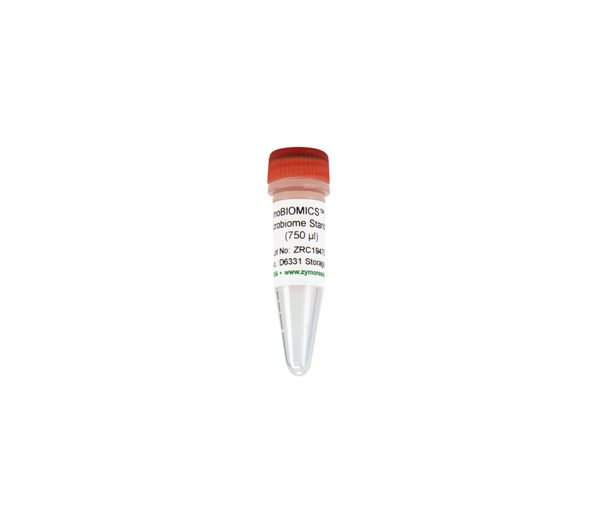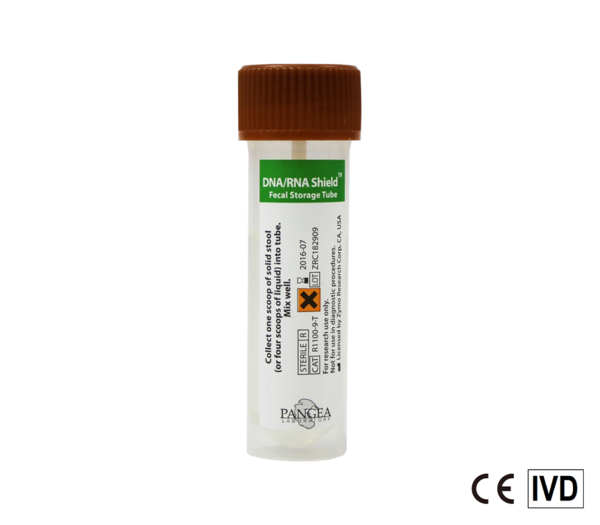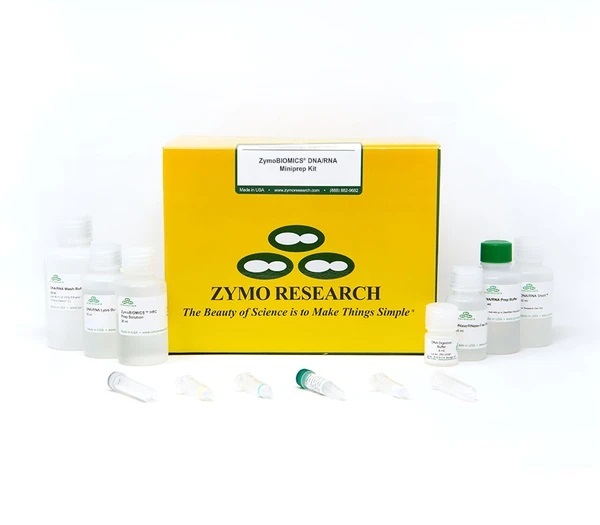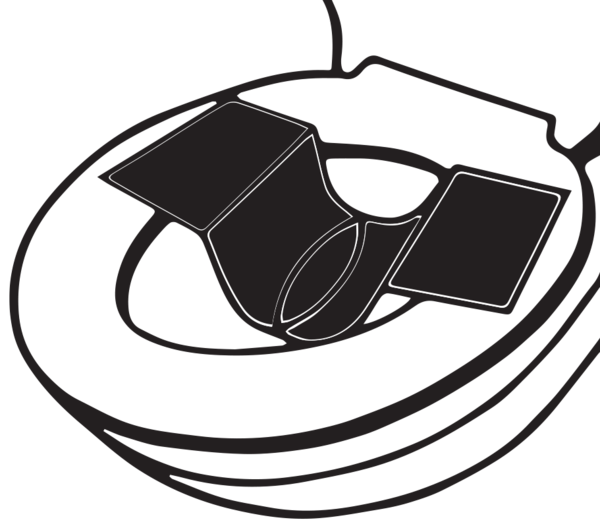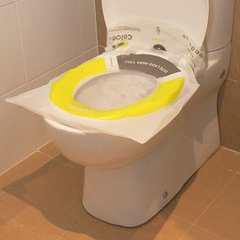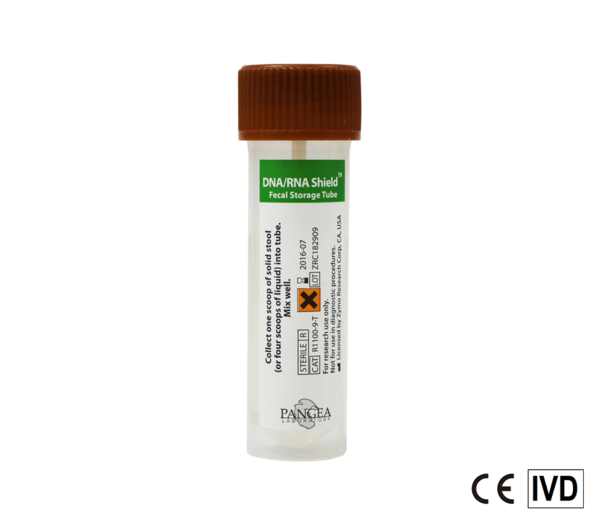Fecal Collection Kits and Devices
Fecal collection kits and devices for the collection, research and diagnostic analysis of stool samples. Reagent included in fecal collection kits and devices inactivate all infectious agents and protect the genetic integrity and microbiome profile of the fecal sample. A great compliment to our fecal sample collection products are our innovative fecal kits that are designed for easy, reliable, and fast isolation of total RNA and DNA.
D6331
The ZymoBIOMICS Gut Microbiome Standard is an accurately quantified microbial community mimicking the human gut microbiome. The challenges it presents to microbiomics profiling allows researchers to validate protocols and fine-tune them for gut microbiome research and act as a positive control for sample processing.
R1101
DNA/RNA Shield Fecal Collection tubes are designed for the collection and preservation of nucleic acids from stool specimens. These fecal collection tubes take a microbial snapshot of a sample while inactivating viruses making samples safe and ready for transport. Samples stored in the these fecal collection tubes are stable at ambient temperature, and can be frozen for longer-term storage. Simply collect a spoonful of the specimen into the stool collection tubes prefilled with preservative and shake vigorously to ensure proper stabilization.
R2002
The ZymoBIOMICS DNA/RNA Miniprep Kit is designed for purifying DNA and RNA from a wide array of sample inputs (e.g. feces, soil, plant, water, and biofilms) that is ready for microbiome or metagenome analyses. The ZymoBIOMICS innovative lysis system eliminates bias associated with unequal lysis efficiencies of different organisms (e.g. Gram-negative/positive bacteria, fungus, protozoans, and algae).
D4300
The ZymoBIOMICS DNA Kits are microbial DNA purification kits designed for purifying DNA from a variety of sample inputs that is immediately ready for microbiome or metagenome analyses. The ZymoBIOMICS lysis system eliminates bias associated with unequal lysis efficiencies of different organisms (e.g. Gram-negative/positive bacteria, fungus, protozoans, and algae) making it ideal for microbial community profiling.
R1101-1-10
Feces Catcher is simply a strip of fecal collection paper that fits onto any toilet seat. The Feces Catcher allows for easy fecal collection of samples for further testing. The Feces Catcher is a great compliment to fecal collection tubes and devices.
R1101-2-5
The ColOff® device, a stool collection facilitator device, is a plastic sleeve for the toilet seat used for tests which use stool as the sample source. ColOff® is a disposable device that facilitates the stool collection in a physiological position (sitting on the toilet seat).
R1101-E
DNA/RNA Shield Fecal Collection Tubes – DX are specimen receptacle medical devices for molecular-based in vitro diagnostic applications. These fecal collection tubes take a microbial snapshot of a sample while inactivating viruses making samples safe and ready for transport. Samples stored in the these fecal collection tubes are stable at ambient temperature, and can be frozen for longer-term storage. Simply collect a spoonful of the specimen into the stool collection tubes prefilled with preservative and shake vigorously to ensure proper stabilization.
R1101
DNA/RNA Shield Fecal Collection tubes are designed for the collection and preservation of nucleic acids from stool specimens. These fecal collection tubes take a microbial snapshot of a sample while inactivating viruses making samples safe and ready for transport. Samples stored in the these fecal collection tubes are stable at ambient temperature, and can be frozen for longer-term storage. Simply collect a spoonful of the specimen into the stool collection tubes prefilled with preservative and shake vigorously to ensure proper stabilization.
D6323
The ZymoBIOMICS Fecal Reference with TruMatrix™ Technology is a microbial reference material composed of stool from healthy donors for quality control, process validation, assay development, and proficiency testing. The fecal reference was homogenized in one large batch to produce consistency in every vial, eliminating typical lot-to-lot variability. With over 2 million preps available, this reference is intended to be used as a control for workflow performance, as well as comparing workflow consistency across replicates, studies, and laboratories. To facilitate methods comparison, a platform is in development to enable users to compare characterization data against applied methodology
D6331
The ZymoBIOMICS Gut Microbiome Standard is an accurately quantified microbial community mimicking the human gut microbiome. The challenges it presents to microbiomics profiling allows researchers to validate protocols and fine-tune them for gut microbiome research and act as a positive control for sample processing.
What Are Fecal Collection Kits Used For?
Fecal collection kits have a wide variety of uses that are most useful when trying to monitor or study large populations. For example, they can be used for things like sequencing to analyze variants of viruses. With this fecal collection kit stool specimens on a range of media can be stored safely at room temperature which is very useful for large epidemiological studies. In a typical kit, it will contain a fecal collection device and the necessary tools to safely extract samples. Our fecal collection devices will also contain our reagent which will allow the sample to be stored at room temperature and transported safely without worry of degradation.
What to Look For in a Fecal Collection Device
Fecal samples collected in a fecal collection device can uncover critical information that can be useful for many clinical diagnoses or studies. Many times, a stool culture is used to identify possible bacterial infections all throughout the gastrointestinal tract. This can unveil valuable information that might lead to more specific screening tests and help narrow down a diagnosis. Researchers or clinicians will find our fecal collection kit essential as it includes disposable personal protective equipment for safety, collection tubes with the collection spoons and a leak-proof lid to seal the tube, as well as an envelope for exportation if necessary.
What Information and Data Is Gained From a Stool Sample?
Like previously mentioned, fecal collection samples are commonly used to identify possible bacterial infections in the gut. Laboratory analysis of stool samples includes things like microbiologics tests, microscope examination, and chemical tests. Features of the fecal sample such as color, consistency, quantity, shape, and odor are all recorded and help with diagnosis. These characteristics will assist in diagnosis of conditions such as: pancreatic insufficiency, fat malabsorption, internal bleeding of the digestive tract, certain infections like salmonella or E. coli, and inflammatory bowel diseases.
What's Next For Fecal Collection?
The future of fecal collection is exponential. One of the most applicable and relevant uses is seen during the pandemic to help analyze and sequence viral genomes. With analysis of human stool and wastewater we can monitor which viral variants are most abundant in the population weeks before we start to see this variant become widespread throughout the community. Another huge application for fecal collection studies is in fecal microbiota transplant. This procedure is a novel and revolutionary treatment that has proven effective at treating devastating bacterial infections like Clostridioides difficile which affects more than 500,000 Americans each year and kills nearly 30,000. The idea behind it is to transfer fecal matter from healthy donors, which will be determined with fecal collection kits, and transfer it to suffering patients to restore gut microbes. Scientists are expecting these therapies to make an impact on many diseases ranging from diabetes to cancer.


